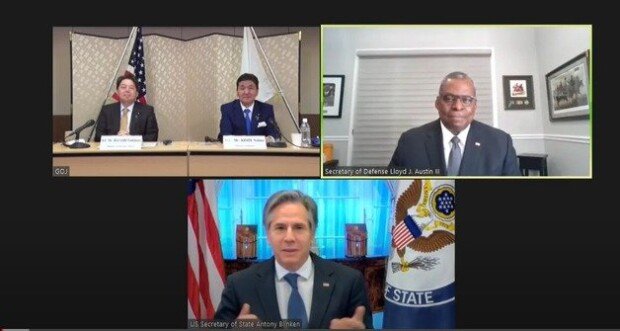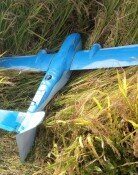U.S., Japan to vow joint response to ultra-supersonic missiles
U.S., Japan to vow joint response to ultra-supersonic missiles
Posted January. 08, 2022 08:00,
Updated January. 08, 2022 08:00

The U.S. and Japan agreed on Thursday that they would conduct a joint study to respond to ultra-supersonic missiles from North Korea, China, and Russia at their meeting of foreign affairs and defense ministers (2+2). The two allies decided to jointly respond to threats posed by China and Russia, which are capable of deploying ultra-supersonic missiles to combat operation, as well as North Korea two days after Pyongyang test-fired an ultra-supersonic missile. Watchers say that collaboration and cohesion has been further strengthened between Washington and Tokyo.
The U.N. Security Council will hold a meeting on Monday to discuss the North’s missile filing at the requests of the U.S., the U.K., and France. In contrast, South Korea has yet to announce any official position despite the North’s claim that it succeeded in test-firing an ultra-supersonic missile, causing critics to suspect that Seoul and Washington may have differing views on how to respond to the North’s nuclear weapons.
In their joint statement after their meeting, U.S. and Japanese ministers expressed concern about the massive development of new weapons systems including nuclear weapons, ballistic and cruise missiles, and ultra-supersonic missile by North Korea, China and Russia. “We have reached agreement to conduct a joint study focused on future cooperation to cope with ultra-supersonic technology,” the ministers said. In attendance at the meeting were U.S. Secretary of State Tony Blinken, Secretary of Defense Lloyd Austin, Japanese Foreign Minister Yoshimasa Hayashi, and Defense Minister Nobuo Kishi.
In their joint statement, Washington and Tokyo also said, “Japan expressed resolution that it would consider diverse options required for its national defense, including capabilities to cope with missile threats through a process to revise strategies, while the U.S. and Japan stressed the need for close solidarity through this process.” The Japanese daily Asahi Shimbun interpreted the message as indicating Tokyo’s intention to consider possessing the capability to target the enemy’s military bases.
lovesong@donga.com · jarrett@donga.com



![‘건강 지킴이’ 당근, 효능 높이는 섭취법[정세연의 음식처방]](https://dimg.donga.com/c/138/175/90/1/wps/NEWS/IMAGE/2026/01/18/133181291.1.jpg)



